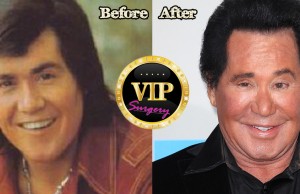Shooting the intruder without the intent to kill is subsequently putting the individual's family in danger. There's just one problem, but it's a big one. September 14, 2021. https://studycorgi.com/kants-deontological-ethics-in-a-real-life-example/. https://helpfulprofessor.com/deontology-examples/. That objection was faced in the 20th century by the British moral philosopher Sir David Ross, who held that numerous prima facie duties, rather than a single formal principle for deriving them, are themselves immediately self-evident. Create a poster, chart, or some other type of graphic organizer that compares and contrasts deontology with utilitarianism. What are the principles of deontology? - sempoa.jodymaroni.com Deontology derives from the Greek deont, which refers to that which is binding[1]. For instance, most people would agree that lying is wrong. (2022). Industrial owners working up their labor too hard in inhumane conditions, and at very low wages, therefore, becomes immoral. "Kants Deontological Ethics in a Real-Life Example." Workplace Example of Duty Based Ethics - Chron Utilitarianism in Ethics | Utilitarian Theory, Ethical Theories in Business | Types, Applications & Differences. Different ethical philosophies place different values of right or wrong on certain choices. Lets understand the concept behind this- Deontology. On the other hand, utilitarians think it is more critical to pursue favorable outcomes than adhere to certain principles or rules (Lgstrup et al., 2020). Depends, right? Kants theory suggests that one should adhere to a strict set of moral principles, regardless of any external influences or outcomes (Sweet, 2013). The utilitarian might argue that even though the outcomes weren't good for everyone, they had the greatest possible good (and it simply wasn't possible to please everyone). Outcomes cannot determine the person's goodwill. To be effective, they need to be universal and hold respect for others in high esteem. Therefore, according to Kant's deontology, it might not be ethical to tell a "little-white-lie" to a significant other because lying is not intrinsically good, and the significant other as an individual must be considered as an end in themselves, and therefore deserve the respect of being told the truth. This notion guided Immanuel Kant, a popular deontological moral philosopher. Examples Of Non Consequential Ethical Theory | ipl.org We often learn these concepts from our families, friends, and other social groups. 3. People often think about deontology as some rigid archaic system, based on strict, predetermined rules that are inflexible and inviolable. Lying is considered wrong, even if it is to benefit or bring about better consequences. For example, by practicing honesty we become honest. And, more interestingly, humans do not have the same conceptions of right and wrong the world over. Rosss attempt to argue that intuition is a source of moral knowledge was, however, heavily criticized, and by the end of the 20th century, Kantian ways of thinkingespecially the prohibition on using a person as a means rather than an endwere again providing the basis for the deontological views that were most widely discussed among philosophers. It is observed that arguments against abortion are seen to be relying upon the deontological theory. Give them any task, and they would obediently execute it in the best manner possible. Joseph Kranak. Deontology is a useful system for understanding morality and can help people stay on the right side of the ethical line. To Kant, an act can only be judged as good if its intentions are known to have goodwill, and if the individual committing the act is doing it out of duty or necessity, even if the outcome of the action might not be good for everyone. In the lab, an electroshock machine was connected to two separate cages. The ethics of everyday practice in primary medical care: responding to You can hack the network and cancel the launch, but its against your professional code of ethics to break into any software system without permission. For example, some presumed intrinsically good things such as intelligence, pleasure, or ambition, Kant argues, are not intrinsically good because they can create ethically worse outcomes when added to particular circumstances. Moral good in the utilitarian framework is entirely contingent on whether the outcome of an action was maximally beneficial. Here are some simple day-to-day instances of how certain moral rules, or principles, affect judgment. About The Helpful Professor Kant wrote his ethics during the 18th century and the age of enlightenment. Oxford University Press. Example a patient A and doctor who is a surgeon, the doctor has a wife and daughter who have been in car accident. Here, according to deontology, the action of drunk-driving itself is wrong, and not just the resultant damage to the car. Differential Application of Utilitarian and Deontological Ethical Examples Of Deontology In Nursing - 338 Words - Internet Public Library Ethical Decisions in Health Care - Catholic Health Association of the 30 videos - one minute each - introduce newsworthy scandals with ethical insights and case studies. Cite this Article in your Essay (APA Style), Privacy PolicyTerms and ConditionsDisclaimerAccessibility StatementVideo Transcripts. For example, some participants contested the notion that the task of medicine lies beyond the physician's immediate, natural and essential responsibility to address individual suffering. Categorical imperative is a powerful tool for understanding how morality works and establishing a strong foundation for ethical behavior. Its name comes from the Greek word deon, meaning duty. copyright 2003-2023 Study.com. Ethical concepts and problems. Try refreshing the page, or contact customer support. Kant argues that the kingdom of ends is only possible if all individuals act out of reverence for universal laws, such as treating individuals as ends in themselves and considering universal laws with a sense of duty. Deontology evolved out of the enlightenment guided by the idea of natural law or the notion that things are intrinsically right or wrong. Ethics can be defined as an individual's own established standards of right and wrong. BBC - Ethics - Introduction to ethics: Duty-based ethics Examples of Deontology Deontology does not always, in fact, almost never, equates the 'right' with the 'good'. I don't think deontology is that simple though. The focus of deontological ethics is on duties and obligations to be followed. For example, If youre a Hindu you might believe that its wrong to eat beef; this rule would be part of our deontology because we think it is wrong to eat beef.if(typeof ez_ad_units != 'undefined'){ez_ad_units.push([[336,280],'studiousguy_com-banner-1','ezslot_9',117,'0','0'])};__ez_fad_position('div-gpt-ad-studiousguy_com-banner-1-0'); If you have made a promise, you must keep it.
Misconceptions About Teaching In Ghana,
Concordia University Irvine Absn,
Articles E








